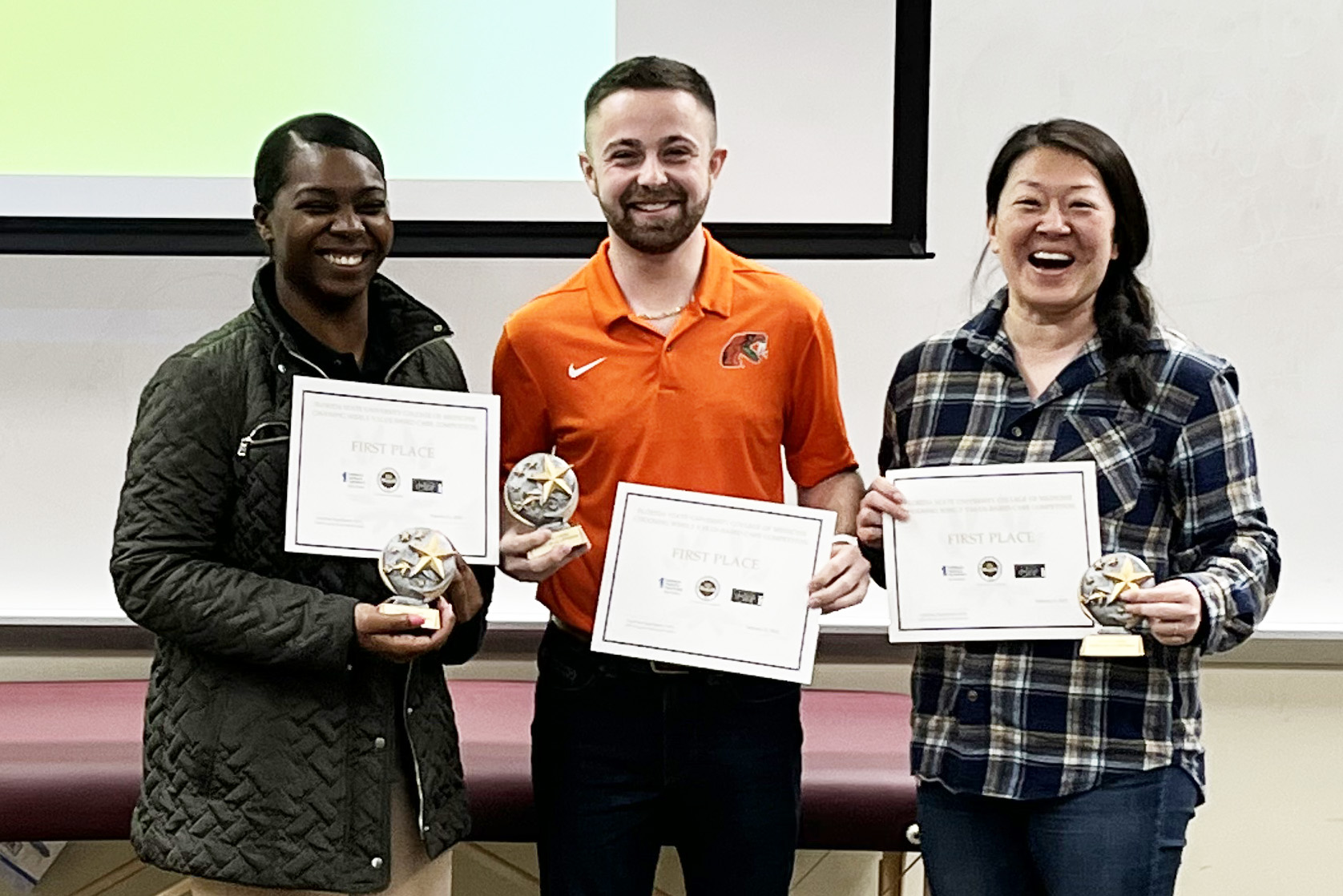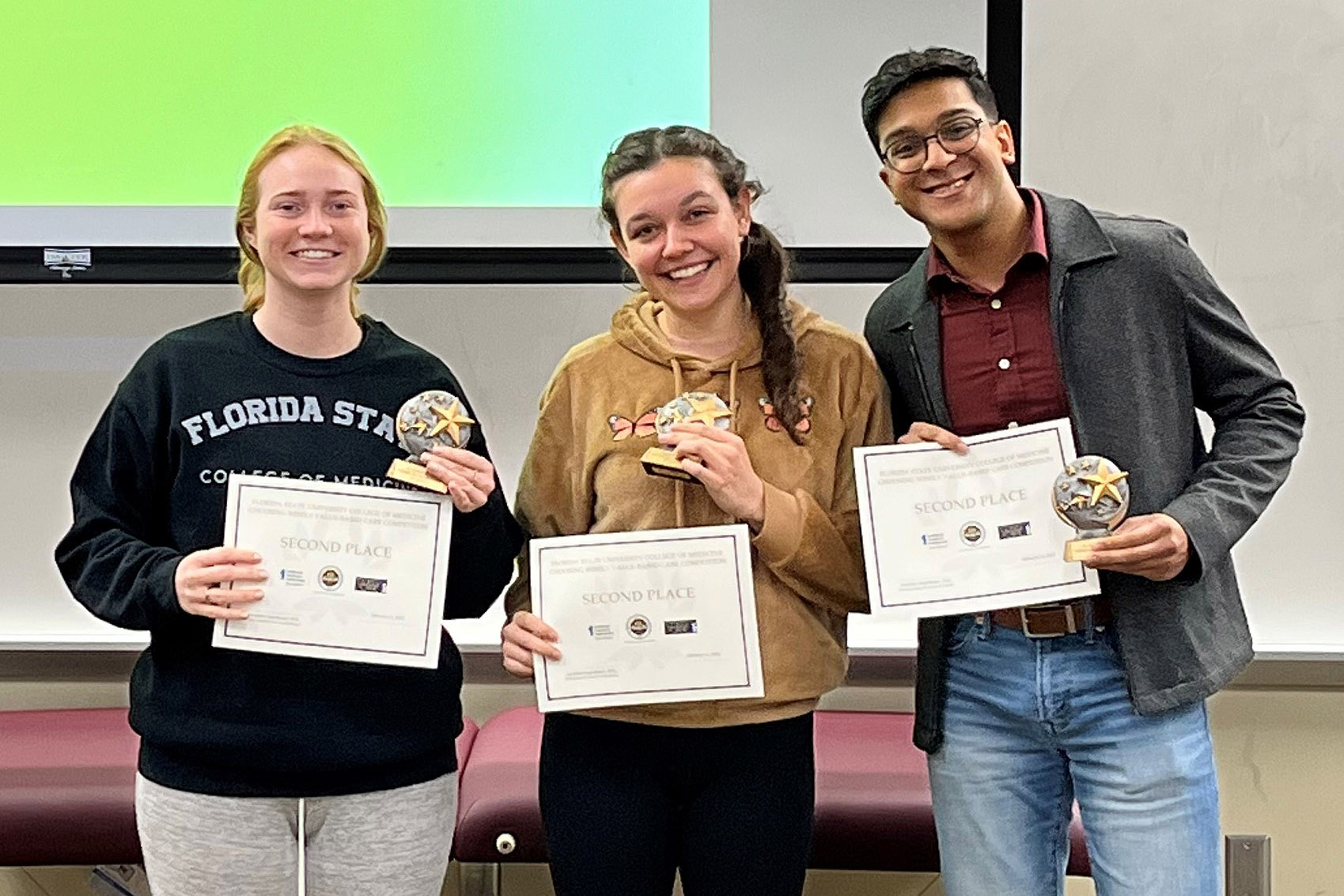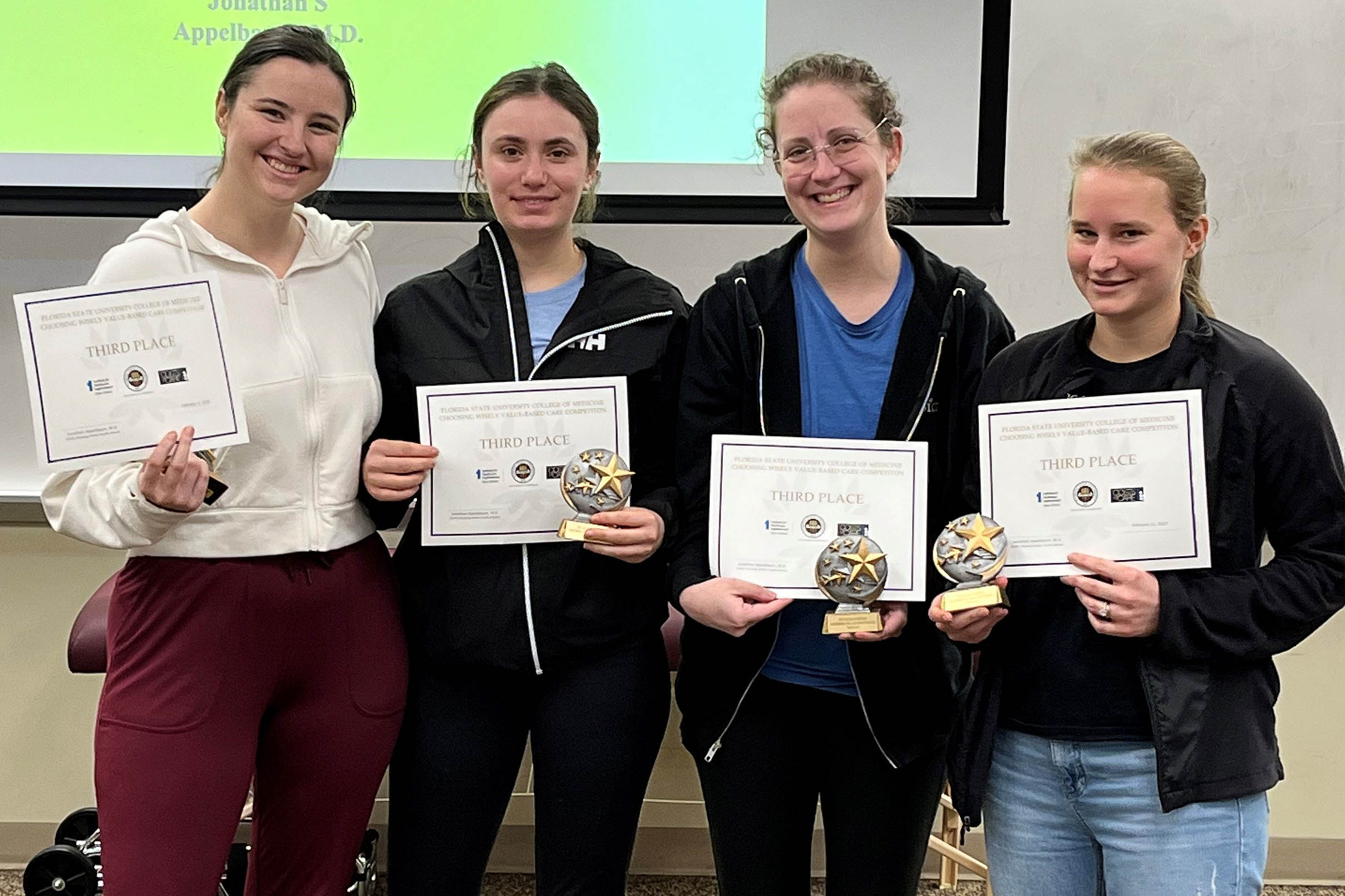Eight College of Medicine students were honored earlier this month for their performances in a value-based, interprofessional care competition sponsored by Choosing Wisely STARS – Students & Trainees Advocating for Resource Stewardship.
The five teams, composed of Florida State University medical and nursing students and Florida A&M University pharmacy students, spent two hours working on a patient case, then gave 10-minute presentations, which were scored by a panel of three physicians.
“The top three teams were recognized, and the first-place team was a true interprofessional team,” said Jonathan Appelbaum, professor of internal medicine at the College of Medicine and STARS faculty advisor. The winning team was made up of FSU medical student Aly Savage (M.D., ’26) and FAMU pharmacy students Feglynn Jean-Baptiste and Joel Connor Stengel.
The second-place team members were Imad Raza (M.D., ’26), Stephanie Connor (M.D., ’26) and Madison Flowers (M.D., ’26). The third-place team members were Elizabeth Ruelke (M.D., ’26), Chrisi Myers (M.D., ’26), Casey Easterling (M.D., ’26), and Kelly Arnold (M.D., ’26).
The competition was organized by Anwar Khan (M.D. ’25) and Jackie Lutz (M.D. ’26), the College of Medicine’s STARS representatives for the current academic year.
STARS was created in Canada in 2015 and begun in the United States in 2017. There are chapters at more than 50 U.S. medical schools and more than 500 students have participated in the program, which creates communities of like-minded change agents dedicated to improving the value and affordability of health care for patients and their families.
“The goals of this competition were to have students of various disciplines – medical, physician assistant, pharmacy and nursing – work together to present the concepts of value-based health-care provision and emphasize practical applications,” Lutz said. “This was done through addressing real-world problems in the health-care field as demonstrated through a patient case.”
Value-based health care is a delivery model that pays providers based on patient health outcomes. Providers are rewarded for helping patients live healthier lives in an evidence-based way. It differs from a fee-for-service system that pays providers based on the amount of health-care services they deliver. The “value” in value-based health care is derived from measuring health outcomes against the cost of delivering those outcomes.
Built on the concept of “leading from where you stand,” students create innovative programs to teach other students how to care best for patients at lower costs. Students also push for including principles of high-value care in the medical school curriculum, said Appelbaum, a physician who also serves as chair of the Department of Clinical Sciences and director of M.D. education.
Last year, Appelbaum was honored with a Faculty Excellence Award by Choosing Wisely STARS. He served as a mentor and judge for the students participating in the competition, along with Gregory Todd, M.D. and Stephen Sandroni, M.D.
“Value deficits are common in health-care systems and as future leaders in health care, we must play a key role in recognizing and addressing these value deficits to, in turn, create more equity in health-care access and outcomes,” Lutz said.
This was the second year of the STARS case competition. The winning team is eligible to advance to national competition.




